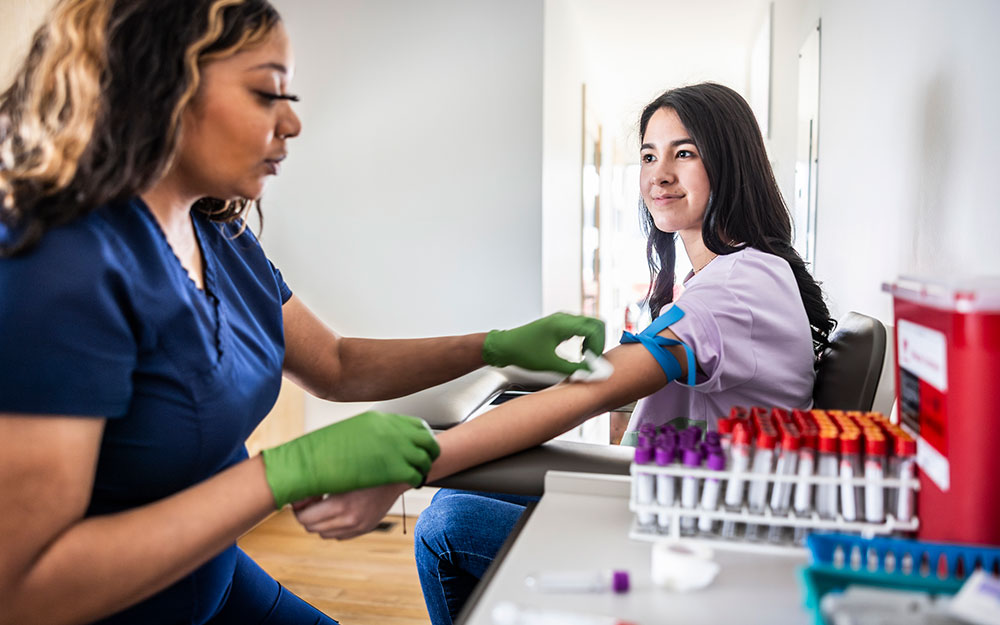Weekend Warriors Take Heart
Date
May 30, 2024

Date
May 30, 2024
Credits
Medical providers featured in this article

In Brief
{{cta-block}}
The weekend warrior tends to get a bad rap. But there’s good news for folks whose weekdays are too busy or tiring to make room for exercise.
Martha Gulati, MD, director of Preventive Cardiology at Cedars-Sinai, said recent research has shown that weekend warriors—people who concentrate all their exercise into one or two days a week—get the same cardiovascular benefits as those who work out more regularly, including lowering their risk of heart attack, heart failure, atrial fibrillation and stroke.
"We say it all the time in cardiology," said Gulati, who holds the Anita Dann Friedman Chair in Women’s Cardiovascular Medicine and Research. "Exercise is medicine. We should be prescribing it, and we should be encouraging it in the way that it fits into our patients’ lives."
{{providers}}
"Exercise is medicine. We should be prescribing it."
How Much Is Enough?
To get all those positive heart-healthy benefits, the U.S. Department of Health and Human Services recommends that adults get 150 to 300 minutes a week of moderate-intensity exercise or half that amount of vigorous exercise.
And that’s not just healthy for your heart. According to the Centers for Disease Control and Prevention (CDC), that amount of exercise can improve brain health and mental health. It also can reduce your chances of developing all kinds of health conditions, including cancer, type 2 diabetes, high blood pressure and high cholesterol, and it can help with weight control.
There are smartwatches that will let you know if your heart rate is in the moderate-intensity or vigorous range while you’re working out. But you can also use the "talk test."
"I tell patients that if you’re able to have a phone conversation, you’re probably not exercising hard enough," said sports cardiologist Merije Chukumerije, MD. "Typically, as you begin to have shorter breaths and you start to almost pant when you talk, those are signs that you’ve gone from a low-intensity to a moderate-intensity level of exercise. Are you sweating? Are you breathing hard? That means you’re getting into the intense zone."
Gulati points out that many studies related to the benefits of working out assume an equivalency between men and women. But in her own research, Gulati found that "there was a sex difference. Women got more out of every minute of exercise compared to men." As a result, she thinks these kinds of gender-neutral exercise recommendations may become more sex-specific in the future.
In the Newsroom: Women Get the Same Exercise Benefits as Men, But With Less Effort
The Downsides of Being a Weekend Warrior
Chukumerije agrees with the original study’s findings that weekend warriors can get all the same healthy heart benefits as someone who exercises more regularly, but he still isn’t a fan of the approach.
"I like patients to build habits and to build patterns that will allow them to remain consistent," he said. If you’re a weekend warrior, "you have to hope that you’re available that weekend or that there’s great weather. If something comes up on the weekend, then you’re not going to be able to exercise until the next weekend. It allows for inconsistency."
There’s also the issue of injury. Cedars-Sinai orthopedist James Tibone, MD, said being a weekend warrior "may be OK for your heart, but it’s never going to be great for your musculoskeletal system. I still see it all the time. People want to get in shape, so they run on the weekends too much and they get leg problems, or they do weights and they get shoulder problems."
What Is the Best Approach?
These doctors all agree that exercising regularly is still the best approach. But they also agree that getting exercise when you can is the most important thing, and if that means being a weekend warrior, do it.
Just make sure you start slowly and build up your tolerance, Tibone stressed.
"You can’t just go out and try to run 5 miles if you’ve never run before. Maybe start at a mile and then add a half-mile every couple of weeks and get up to your goal distance," he said. Also, "stretch before you exercise. Make sure you warm up sufficiently. And everyone’s different, so you have to limit it to what your body can take. You shouldn’t just exercise to exhaustion or until you can’t take it any longer."
But don’t let age hold you back. "Age ain’t nothing but a number. There are 90-plus-year-old marathon runners," Chukumerije said. "We’re realistic. We know that as you get older, you’re naturally going to have more limitations. But that 90-year-old heart can be very functional and still allow that person to go and do things. So, I don’t put an age limit on anyone."
Gulati just wants you to do something. If 150 to 300 minutes seems overwhelming, she said even five minutes of exercise has value. "There’s data that continues to show these survival benefits, meaning if you’re more active, you’re more likely to live longer."




.jpg)

